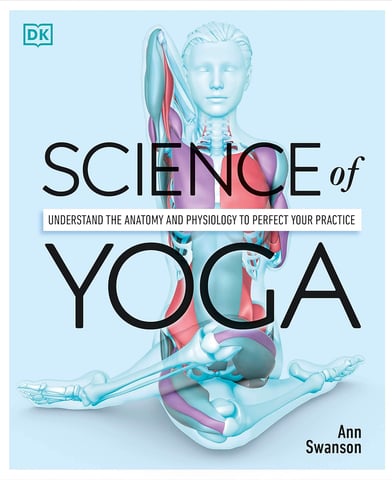The Science Behind Somatic Yoga and Healing
10/25/20243 min read
Somatic yoga is so much more than a mindful movement practice-it bridges ancient wisdom to modern neuroscience. Somatic Yoga integrates body awareness with gentle movements, thereby facilitating deep healing from both physical and psychological levels. In the following article, we shall further elaborate upon the science supporting somatic yoga and how it enables healing by reprogramming the nervous system and fostering mind-body connection.


Understanding Somatics: A Neuroscientific Perspective
The term "somatics" refers to the study of the body as perceived from within. Somatic practices focus on the internal experience of movement and how the mind and body communicate.
Key Concepts:
Sensory-Motor Awareness: Conscious perception of bodily sensations and movements.
Neuroplasticity: The brain's ability to reorganize itself by forming new neural connections.
Proprioception: The sense of self-movement and body position.
The Role of the Nervous System in Somatic Yoga
Reprogramming Habitual Patterns
Chronic tension and pain often result from habitual muscular patterns encoded in the nervous system. Somatic yoga aims to interrupt these patterns.
Muscle Memory: The nervous system's habitual signals to muscles can cause persistent tension.
Neuromuscular Re-education: Slow, mindful movements help retrain the brain to send new signals, releasing tension.
Activating the Parasympathetic Nervous System
Somatic yoga promotes relaxation by stimulating the parasympathetic ("rest and digest") branch of the autonomic nervous system.
Heart Rate Reduction: Slow movements and deep breathing lower heart rate.
Stress Hormone Reduction: Decreases cortisol levels, reducing stress.
How Somatic Yoga Facilitates Healing
Physical Healing
Pain Reduction: By releasing chronic muscle contractions, somatic yoga alleviates pain.
Improved Mobility: Enhances joint flexibility and movement range.
Postural Correction: Addresses imbalances leading to better alignment.
Emotional and Psychological Healing
Trauma Release: Trauma can be stored in the body; somatic yoga provides a safe way to process and release it.
Emotional Regulation: Improves the ability to manage emotions through increased self-awareness.
Mindfulness Enhancement: Promotes presence, reducing rumination and anxiety.
Scientific Studies Supporting Somatic Practices
Research has shown the effectiveness of somatic approaches in various areas:
Chronic Pain Management: Studies indicate that somatic movement reduces pain intensity and improves function.
Stress Reduction: Mind-body practices lower stress biomarkers.
Improved Mental Health: Participants report decreased symptoms of depression and anxiety.
Example Study:
A study published in the Journal of Bodywork and Movement Therapies found that participants practicing somatic movement experienced significant reductions in chronic back pain compared to a control group.


The Mind-Body Connection
Somatic yoga strengthens the communication between the mind and body, leading to holistic healing.
Interoception: Increased awareness of internal bodily states.
Emotional Awareness: Recognizing how emotions manifest physically.
Embodiment: Fully inhabiting one's body, leading to greater authenticity and presence.
Practical Applications of Somatic Yoga
Rehabilitation and Physical Therapy
Complementary Therapy: Supports recovery from injuries by promoting gentle movement.
Chronic Conditions: Assists in managing conditions like fibromyalgia and arthritis.
Mental Health Support
Trauma Therapy: Used alongside psychotherapy to process traumatic experiences.
Stress Management Programs: Incorporated into wellness programs for stress relief.
Incorporating Somatic Principles into Daily Life
Mindful Breathing: Regularly check in with your breath to anchor yourself.
Body Scans: Practice scanning your body for tension and consciously releasing it.
Movement Breaks: Integrate gentle movements throughout the day to reset your nervous system.
Conclusion
The science behind somatic yoga reveals its powerful potential for healing by harnessing the brain's adaptability and the intrinsic connection between mind and body. Through mindful movement and increased awareness, somatic yoga offers a pathway to alleviate physical discomfort, process emotional pain, and foster overall well-being.
Embark on your own healing journey by exploring somatic yoga practices at The Joyful Journey. Unlock the transformative power of connecting mind and body today.


Joy
Inspire your journey to happiness and fulfillment.
contact us
Growth
© 2024. All rights reserved.








